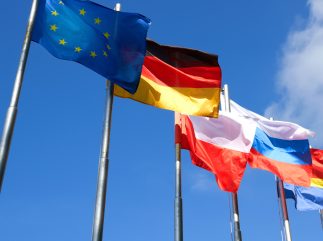
The European Commission has approved up to €6.9bn ($7.43bn) in state aid to support Germany and six other member nations with the development of hydrogen infrastructure.
The aid will be allocated under the Important Projects of Common European Interest (IPCEI) programme, which seeks to boost the development of “innovative” infrastructure as part of its Green Deal and REPowerEU plan.
The proposal set to receive the funding, called IPCEI Hy2Infra, was jointly prepared by seven member states: France, Germany, Italy, the Netherlands, Poland, Portugal and Slovakia. It will provide support to 32 companies working on a combined 33 projects along the hydrogen value chain, the Commission said in a press statement. It expects the aid to also unlock €5.4bn in private investment.
IPCEI Hy2Infra will support the deployment of not only 3.2GW of large-scale electrolysers to produce renewable hydrogen but also new and repurposed hydrogen transmission and distribution pipelines of approximately 2,700km.
It will also aid the development of large-scale hydrogen storage facilities with a capacity of at least 370 gigawatt-hours as well as the construction of terminals and related port infrastructure, expected to manage 6,000 tonnes of hydrogen annually, the Commission said.
Some of these projects will be operational in the next few years, with some electrolysers expected to come online by 2026.
Margrethe Vestager, Executive Vice-President in Charge of Competition Policy, said: “While the renewable hydrogen supply chain in Europe is still in a nascent phase, Hy2Infra will deploy the initial building blocks of an integrated and open renewable hydrogen network.” She added that the proposal will contribute to the EU’s plan to be the first climate-neutral continent.
The bloc has been increasing investment in and focus on hydrogen as it looks to decarbonise industry quickly. In November, the Council and parliament finally reached a provisional agreement on rules for its internal hydrogen and gas markets, although disagreements over biogas targets and hydrogen procurement prevented negotiations on the bloc’s new hydrogen policy from fully closing.
One month later, in December, a deal was reached to establish a hydrogen grid planning body, finally bringing drawn-out talks to an end. The strengthening of measures to boost investment in hydrogen infrastructure was a sticking point in negotiations.
Germany’s central and localised governments will make €4.6bn available for the construction of hydrogen infrastructure in the country under the IPCEI Hy2Infra scheme, its Economy Ministry said in a statement.
“Strengthening the German hydrogen economy along the entire value chain is essential to enable a rapid market ramp-up,” said Minister for Economic Affairs and Climate Protection Robert Habeck, adding that he is “very pleased” to see the EU provide greater support for hydrogen.
The development of a solid hydrogen industry is at the heart of Germany’s net-zero plans. In July last year, an update to the government’s hydrogen strategy, initially unveiled in 2020, doubled a previous target for domestic electrolyser capacity to 10GW by 2030, although the country still expects to import most of its hydrogen.
Despite its role in decarbonisation plans, not all hydrogen in the EU will be green. Some will be made from natural gas, also known as blue hydrogen, as well as from other methods, all of which still produce emissions at different points of the production process.



